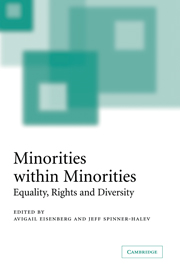1 - Tolerable liberalism
Published online by Cambridge University Press: 22 September 2009
Summary
Justice, peace and toleration
“No justice, no peace!” The social movement slogan seeks attention for its cause with an outstretched arm that ends in a clenched fist. On one level, we can read it as a sociological prediction: where groups are chronically frustrated in their quest for fair treatment, they will turn to social disruption or even to violence in order to press their claim. Doing justice is the best way to secure peace. On another level, we can read it as a threat that if those in power ignore the group's claims there will be a price to pay. If successful, this strategy will always leave in doubt whether concessions were gained out of regard for justice or for the sake of peace. However valid the phrase may be as a prediction, as a policy for social justice advocates it is a risky venture.
In liberal societies, the slogan has at least as much appeal when it is turned on its head: “No peace, no justice!” Like the first version, this one reads as both an empirical claim and a policy. In its guise as empirical claim it expresses the idea, traceable to Hobbes, that justice can be secure only where there is a stable political authority that has the power to secure it. As a policy, it expresses a refusal to consider claims of justice from those who are threatening social order, as in the statement that “we will not negotiate with terrorists.”
- Type
- Chapter
- Information
- Minorities within MinoritiesEquality, Rights and Diversity, pp. 19 - 40Publisher: Cambridge University PressPrint publication year: 2005
- 6
- Cited by

